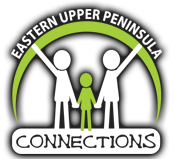210 Results
Newberry United Methodist Church
Contact Information:
Address: 110 W. Harrie Street Newberry, MI 49868
Phone: (906) 293-5711
110 W. Harrie Street Newberry, MI 49868
Phone: (906) 293-5711
North Arrow ABA
Contact Information:
Website: North Arrow ABA Website
Address: 2650 I-75 Business Spur Sault Ste. Marie, MI 49783
Phone: (231) 268-0007
2650 I-75 Business Spur Sault Ste. Marie, MI 49783
Address: 2650 I-75 Business Spur Sault Ste. Marie, MI 49783
Phone: (231) 268-0007
NorthCare Network
Contact Information:
Website: NorthCare Network Website
Address: 200 W. Spring Street, Suite 2 Marquette, MI 49855
Phone: (906) 225-7254
200 W. Spring Street, Suite 2 Marquette, MI 49855
Address: 200 W. Spring Street, Suite 2 Marquette, MI 49855
Phone: (906) 225-7254
Our Redeemer Lutheran Church
Contact Information:
Website: Our Redeemer Lutheran Church Website
Address: 321 W. John St Newberry, MI 49868
Phone: (906) 293-8331
321 W. John St Newberry, MI 49868
Address: 321 W. John St Newberry, MI 49868
Phone: (906) 293-8331
Parents As Teachers of the EUP
Contact Information:
Website: Parents As Teachers of the EUP Website
Address: 315 Armory Place Sault Ste. Marie, MI 49783
Phone: (906) 259-8031
315 Armory Place Sault Ste. Marie, MI 49783
Address: 315 Armory Place Sault Ste. Marie, MI 49783
Phone: (906) 259-8031
Pickford Community Library
Contact Information:
Website: Pickford Community Library Website
Address: 137 East Main Street Pickford, MI 49774
Phone: (906) 647-1288
137 East Main Street Pickford, MI 49774
Address: 137 East Main Street Pickford, MI 49774
Phone: (906) 647-1288
Pickford Global Methodist Church
Contact Information:
Website: Pickford Global Methodist Church Website
Address: 115 E. Church Street Pickford , MI 49774
Phone: (906) 647-6195
115 E. Church Street Pickford , MI 49774
Address: 115 E. Church Street Pickford , MI 49774
Phone: (906) 647-6195

